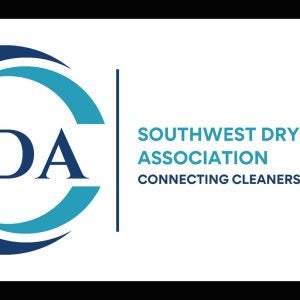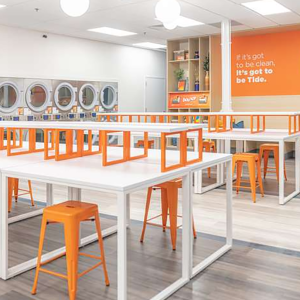UK
It is good to see that the national mainstream press has finally picked up on the trials and tribulations facing the textile care industry and in this particular instance, drycleaners/wetcleaners. On Sunday, 19 July, The Sunday Times published a feature by Liam Kelly, its enterprise consultant, which chronicled the experiences of three leading drycleaning businesses since the pandemic hit.
Julian Stone, founder of American Dry Cleaning Company, which has 42 outlets in London, likened the sight of empty streets as he drove around the capital visiting his shops to “a ghost town” and said it conjured up scenes from Danny Boyles apocalyptic horror film 28 Days Later .
He told Kelly:“Drycleaning is driven by socialising, going to eat out, international travel, parties — all of that has come to a halt.” He finds it “difficult to be optimistic”.
He explained that drycleaners are particularly hard hit as city workers travailing at home don’t have the need for five shirts to be washed and ironed professionally every week and how “couples and families are no longer going out to restaurants, big family birthday parties, weddings, Ascot, Wimbledon or other social summer events – all valuable sources of income for Britain’s more than 4,000 drycleaning firms – has also hit the trade”.
Although drycleaners were classed as an essential service, and therefore allowed to stay open during lockdown many, including Stone shut and took furlough money under the Government’s Job Retention Scheme, reported Kelly.
However, as Stone told LCNi: “We have been closed from mid-March and reopened 1 June. We are currently open just 25 hours per week compared with 70 last year. With no going to work, parties, restaurants or international travel the service that we provide has fallen off a cliff. The difficulty currently is, with such low turnover versus this time last year, juggling how many colleagues to bring back from furlough.
“The biggest challenge was to bring our landlords back down to earth with their expectations of rent. It was as if they had been on a trip to Mars and just landed back on Earth and demanding full rent. Most of our landlords, say 70%, have now started to wake up and smell the coffee, entering into accommodative agreements as set out by the Government Code of Practice for Commercial Property by providing rent waivers, and reductions of rents for a six -to nine-month period. Interestingly, the larger landlords such as pension funds have no interest in engaging in any discussions on rent reductions, or deferments what so ever. We will just have to wait and see how this pans out.
“Another challenge is to convince your bank that you have no business, and you require a large CBIL to allow you to trade through the economic tsunami. This required a lot of convincing, too."
Nevertheless, he said: “We are holding up. The best thing is to soldier on, provide excellent quality and service to your customers, and stick to your principles of business.”
Meanwhile, in Nottingham, Adrian Redgate kept National Dry Cleaners open throughout lockdown to help the elderly customers who use his laundry services. He told The SundayTimes that with just a trickle of people bringing in winter coats and duvets to be cleaned, sales were down 90% between April and June. “Even if you ran a business badly, you wouldn’t lose all your customers that quickly,” he said. “Until people start getting back to work on a regular basis, it will be hard for us to pick up again,” he said.
And it’s not much cheerier for national high street chain Johnson Cleaners*, where owner James Timpson told The Sunday Times that drycleaning sales had halved and that “there is nothing we can do but offer a really good service – and hold our nerve”.
LCNi subsequently caught up with James Timpson for further comment and he said: “Sales are terrible. Terrible. Down 50% and that hurts in a business with high costs and low margins. However, we are hopeful that over time things will improve.” As for whether customer dependency on drycleaning itself will change in the future due to learned behaviours during lockdown and the move to home working he said demand is driven by a mix of work and social and much may depend on whether office people go back to work full time or maybe just two or three days a week. “But social events should go back to normal and there will be plenty of weddings next year, even if not immediately. “
Feedback from independent retail shops nationally seems to indicate just 10-15% of business is being done compared with April-July last year although there may be regional variations. Some businesses reported a small surge as lockdown lifted but turnover has now fallen back again. Altogether it is not encouraging. However, some cleaners do have hotel work so if the hotels do manage toopen up successfully there is some hope there.
With job losses proliferating in all industries and the end of furlough likely resulting in more redundancies and reduced incomes, uncertainty about when businesses of all kinds will be fully manned in town centres, cleaners who rely on volume to survive admit to being very worried. Concern has also been expressed about clients find ways of cleaning clothes in lockdown that cut out the need for a trip to the cleaners. And, to top it all, cleaners are also having to contend with uncollected stock on the rails as customers prioritise other payments.
*The Timpson brand also offers drycleaning along with other services such as keycutting and shoe repairs but this is run separately from Johnson Cleaners. Johnson Service Group sold its retail drycleaning business to Timpson Group for £8.25million in 2017. See http://www.laundryandcleaningnews.com/news/newsjsg-sells-drycleaning-business-to-timpson-for-825m-5712103/






